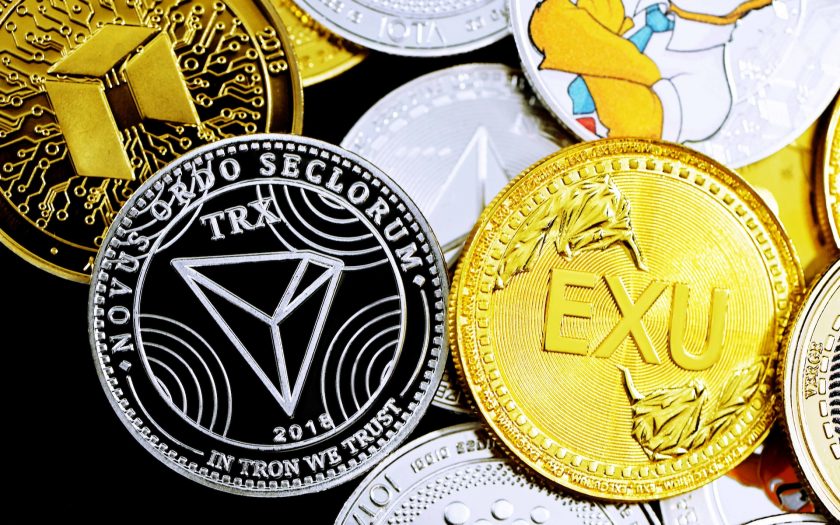
Vidhu Bajaj
23 Jan, 2023
Fact Checked
The word ‘token’ was first used to refer to any cryptocurrency other than Bitcoin and Ethereum, the two biggest and best-known cryptocurrencies. It was used as an umbrella term without any specific distinction, just like the word altcoin (alternative coin) that was used to refer to all cryptocurrencies other than Bitcoin.
Today, however, the meaning of a token has evolved. Depending on the context, a token can either represent cryptocurrencies other than Bitcoin and Ethereum, or a type of digital asset that operates on other cryptocurrencies’ blockchains. For example, Tether, Shiba Inu, and Uniswap are all tokens that operate over the Ethereum blockchain, whose native crypto coin is Ether or ETH.
A token is a digital asset that operates over another cryptocurrency’s blockchain network. Unlike crypto coins that only operate on their native blockchains, tokens leverage the technology of other cryptocurrency blockchains.
Besides the underlying technology, coins and tokens might differ in their use. Crypto coins are only used for monetary transactions – to buy and sell products and services, and for fund transfers. Tokens, on the other hand, can be used for more than just monetary transactions. They are also used as assets and securities (art, stocks, ownership rights, and so on) that can be transferred from one person to another. Depending on the use, tokens leverage blockchain mechanisms like smart contracts and proof of work to record transactions.
Interestingly, all coins can be considered tokens, because both are capable of serving as a digital currency for financial transactions. However, all tokens are not used as coins for monetary transactions, some are owned as assets.
Tokens expand the usability of the blockchain and cryptocurrencies. Tokens can be used to create a currency, an asset, an application, or art – the possibilities are numerous. Depending on their intended use, there are various types of tokens in the crypto world, such as:
Decentralised Finance (DeFi) tokens are cryptocurrencies that aim to replicate certain conventional services delivered by financial institutions like insurance, loans, trading, and so on. The aim is to create a decentralised version of these financial functions. They can also be used for financial transactions like crypto coins.
Payment tokens are created to be used as digital currencies for financial transactions, just like crypto coins.
Governance tokens are special DeFi tokens that give their owners the authority to influence the future of the underlying cryptocurrency protocols being used. Because cryptocurrencies are decentralised, there isn’t a single authority (like a board of directors) to govern the workings of the system. Owners of governance tokens share this responsibility.
NFTs represent the ownership rights of a digital or real-world asset, like a piece of art. By digitising ownership (represented by a token) and trading it over a decentralised blockchain, NFTs make it difficult to duplicate or steal unique, copyrighted creations. The proof of ownership lies with the owner of the token.
Security tokens are digital assets aimed at replicating traditional securities like stocks and bonds. Some enterprises are looking to digitise and sell company shares over the blockchain network using security tokens.
Buying tokens is similar to buying crypto coins. You need to create a crypto wallet account and then go through an exchange platform that supports the token. The procedure may vary depending on the type of token (DeFi, NFT, and so on) you plan to buy, so be sure to research the steps involved before investing.
Cryptocurrency
Subscribe to our newsletter
By continuing, you agree to the RateCity Privacy Policy, Terms of Use and Disclaimer.
Did you find this helpful? Why not share this article?
Fact Checked
This article was reviewed by Personal Finance Editor Peter Terlato before it was published as part of RateCity's Fact Check process.
Vidhu Bajaj
Personal Finance Writer
Vidhu is a Personal Finance Writer at RateCity. She has been writing about finance topics from car loans and home loans to superannuation and cryptocurrencies for over five years. Before moving into finance, Vidhu went to law school where she studied human rights law. She has a Bachelor of Law degree and has previously worked in asset finance for Clifford Chance for more than four years. During her time at Clifford Chance, she worked in the India, London and Hong Kong offices on everything from aviation to vessel finance. In her spare time you’ll find her reading the Australian Financial Review or spending time with her dog Coco.
 How To Make Huge Profits In A Short Time With Crypto
How To Make Huge Profits In A Short Time With CryptoGet detailed training system that shows an absolute beginner (without any skill) how to make huge profits in a short time with crypto.
 Crypto + NFT Quick Start Course
Crypto + NFT Quick Start CourseThe #1 course for profit in the Crypto & NFT world - You will discover the secrets that 99% of people don’t know yet




